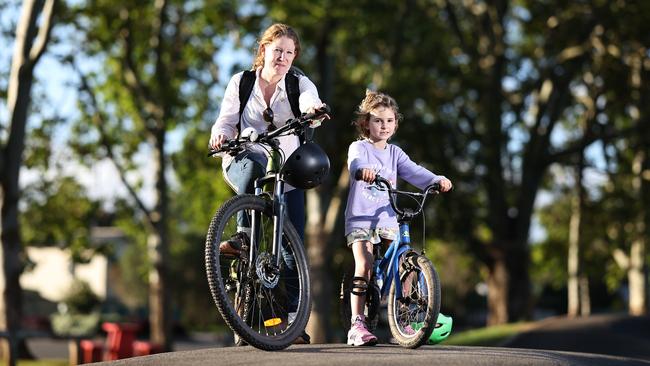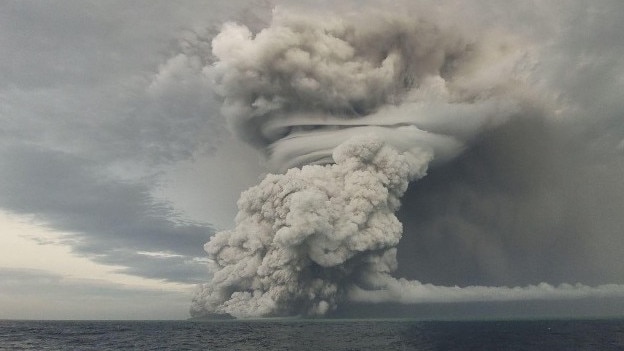UNSW lecturer Martin Jucker attributes Cairns temperature drop to Tongan volcanic eruption
A volcanic eruption from 2022 could potentially cause temperatures to drop across northern Australia this winter, according to researchers.

Cairns
Don't miss out on the headlines from Cairns. Followed categories will be added to My News.
A volcanic eruption could cause temperatures to drop across northern Australia this winter, including in Far North Queensland.
University of New South Wales atmospheric dynamics lecturer Martin Jucker said his team predicted cooler winters across northern Australia based on modelling after the Tonga Hunga volcanic eruption in 2022.
The South Pacific undersea volcano Hunga Toonga-Hunga Ha’apai erupted in January, emitting 100 to 150 million tonnes of water vapour into the air.
“All of that water that got pushed out very high up in the stratosphere where normally little water is — will stay until about 2029,” Dr Jucker said.
“What we expected for these coming four years (after the eruption), is cooler, cloudy winters all across northern Australia, not just Queensland specifically.”
Dr Jucker said it was widely agreed by other researchers the eruption would have regional, rather than global impacts.
“What we find interesting is that everybody seems to agree the volcano should not have any effect on global temperatures, and are also in agreement that there can be these regional impacts, (albeit) with slightly different effects,” he said.

“Time will tell what the regional impacts are going to be and how they interact, but it’s going to be really interesting for us to monitor.”
It comes after Far North Queensland recorded a slightly cooler start to the dry season, with Bureau of Meteorology forecaster Daniel Hayes confirming a low of 18C recorded last weekend.
“So for this week and the weekend, we have seen temperatures a little below average (20C), and it’s been more pronounced than minimum temperatures, but only within a degree or so,” Mr Hayes said.
“As we head toward the end of the month, we expect to see the temperatures trend a little more toward June averages, so they’ll drop down by another 2C usually.”
However, he could not confirm if the lower than average temperatures were related to any long-term effects from the 2022 eruption.
Mr Hayes said there would be a slight chance of showers around Cairns but significant rain totals were unlikely.
“For the most part, there’s only a slight chance of showers here or there … still not talking large amounts though, around 5mm or less,” he said.
“There’s potentially a bit more cloud and a slight frequency in shower activity but fairly light ones, so not quite as sunny, but not much rainfall as expected.”
Originally published as UNSW lecturer Martin Jucker attributes Cairns temperature drop to Tongan volcanic eruption




